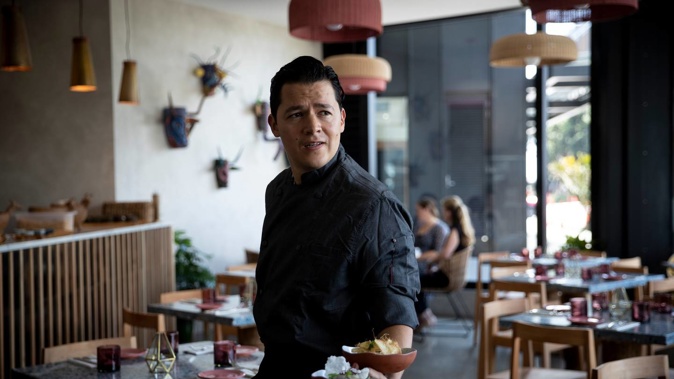
A South American chef faces the prospect of having to leave New Zealand after failing to get a work visa because Immigration NZ says it was "not satisfied burrito, nachos, quesadilla and tortillas required the skills of a specialist chef".
Her employer, the owner of an Auckland Latin American restaurant, is fuming and slamming INZ's decision as "ignorant and racist".
A survey by the Restaurant Association found 78 per cent of hospitality businesses were struggling to recruit skilled workers needed to keep their business going.
Luis Cabrera, 40, owner of Besos Latinos Ceviche Bar at the Auckland Viaduct, says without his chef, he would struggle to keep his business operating with its current hours and that could have a devastating effect.
"We already had to close down one of our restaurants at the Elliot Stables, and if INZ continues to make it impossible for us to keep our staff than we could be in big trouble here too," said Cabrera, who is also the head chef.
Cabrera said his restaurant served traditional South American dishes from Argentina, Cuba, Mexico and Peru and had only sold nachos and burrito as takeaways during the lockdown.
In a letter to his chef, who did not want to be named, INZ said it was not satisfied those items, along with quesadilla and tortillas, required technical or specialist expertise expected of a chef.
She was told that her expiry date of her current visa is July 13, and that she should arrange to leave NZ before her visa expired if she was not eligible for a further temporary visa.
"That view itself is so ignorant and racist, it's just like saying Chinese dumplings do not require specialist chefs because they can be bought from the frozen section of Countdown supermarket," he said.
"This has made me so upset and angry. It is a direct insult to chefs and the cuisine from my part of the world."
After providing further information, the agency accepted the restaurant uses various specialised cooking techniques - but still declined the chef's work visa application.
Restaurant Association chief executive Marisa Bidois said a vast majority of hospitality businesses were finding it difficult to recruit skilled staff.
Bidois said the association was working with INZ to ensure there was an understanding of the industry and the intricacies of the roles required.
"But, sadly, cases like Luis' are not uncommon. Unfortunately, with no dedicated minister for hospitality, at times we battle to be heard and remove preconceived ideas about what it means to work in hospitality," she said.
"The skills shortage has long been an issue in the industry and there's no doubt that the border closures have made this even more challenging. This will be further amplified as demand increases and will be a challenge that our industry must face."
Bidois said skilled migrants played a crucial role in supporting the shortfall of workers in the industry.
"It is important that the industry can continue to employ migrant workers where no suitable New Zealand candidates can be found," Bidois added.
Until this year, about a third of the industry was made up of a migrant workforce here on temporary work visas.
An Immigration spokeswoman said the chef had applied for a work visa under the long-term skill shortage list on February 9, 2021.
"To be granted this work visa, an individual must have the specified work experience, qualifications and occupational registration to work in an occupation on the long-term skill shortage list," she said.
"The onus is on the applicant and employer to ensure they clearly demonstrate how the applicant meets the relevant immigration instructions."
She said INZ was satisfied after subsequent information provided by her employer that the restaurant uses various specialised cooking techniques, but said there was no evidence the chef was involved in tasks expected for the job.
"As a result, INZ was not satisfied that she was performing the tasks of a Chef de Partie or higher and had an offer of employment that is included on the list," the spokeswoman said.
The chef's application was declined on April 13, 2021, as it did not meet the requirements as set out in immigration instructions.
"While INZ understands the challenges facing the hospitality industry due to the impact of Covid-19 and current skill shortages, INZ assesses all visa applications against the relevant immigration instructions," the spokeswoman added.
Take your Radio, Podcasts and Music with you









